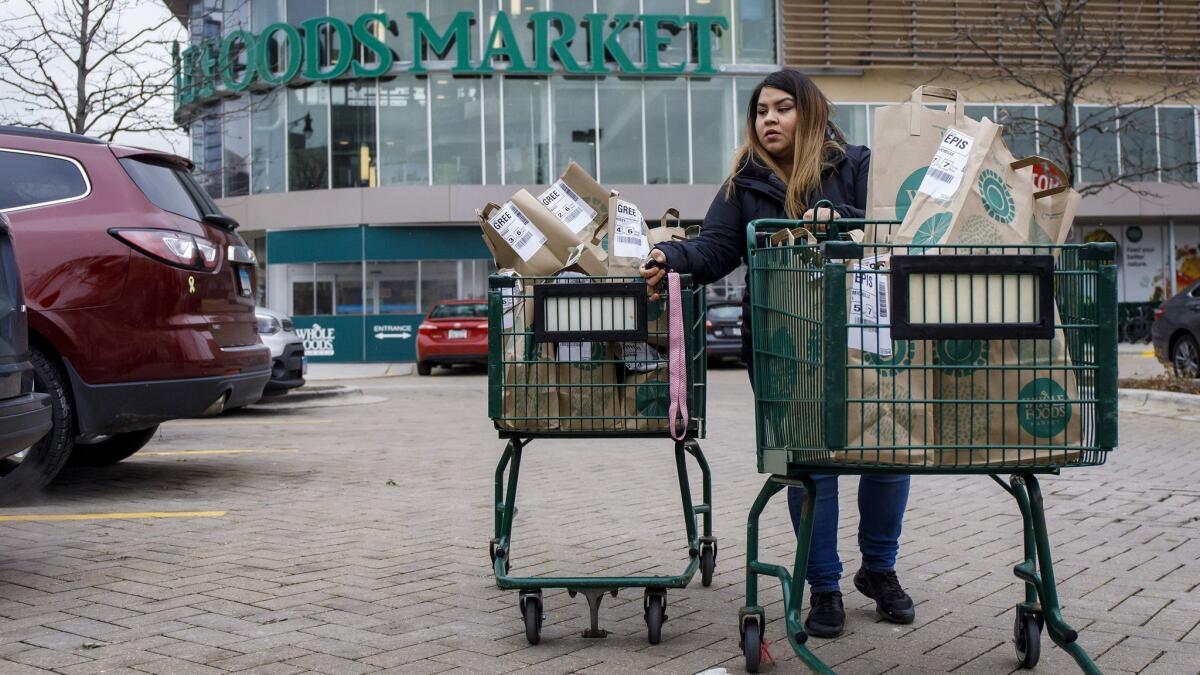Instacart adjusts worker pay after uproar over tipping policy

Instacart Inc. is changing a controversial policy on how it pays workers who pick up and deliver grocery orders after protests over a pay system instituted last fall.
The San Francisco startup said Wednesday that it will give workers the full tips from customers and stop docking parts of the tips from fees Instacart pays them. It will also offer back pay.
The retreat illustrates a delicate balance that gig-economy startups struggle to maintain between keeping prices low for customers and paying their workers fairly. Fees associated with food delivery orders are often opaque to both customers and workers. Small changes to policies can have outsize effects on how much workers take home.
In November, Instacart made a change to its compensation system, in which the company sometimes pays workers less if they receive a certain amount in tips. In January, workers organized a campaign against the new pay system. They said that under the new policy, some of the tips that customers gave through the Instacart app wouldn’t go directly to the worker but would instead be used to offset a $10 minimum payment per job guaranteed by Instacart. The issue was further highlighted by the story of an Instacart worker who was paid 80 cents for a particular delivery.
In a blog post Wednesday, Instacart Chief Executive Apoorva Mehta wrote that the company will now always separate tips from the compensation that the company pays. It also raised the guaranteed pay for some jobs and said it would retroactively pay its workers for the amounts that tips were used to offset the job pay.
“These changes were designed to increase transparency while also keeping pace with a rapidly evolving industry,” Mehta wrote. “In doing so, we’ve tried, in good faith, to balance those needs, but clearly we haven’t always gotten it right.”
Ashley Knudson, a 35-year-old Instacart worker in Tacoma, Wash., said she is “cautiously optimistic” about the change. She shops full time to support her two children and said the November change pushed her to work seven days a week to make the same amount as she used to make in five. She’s happy that Instacart listened to laborers but said there’s still more the company could do to ensure consistent compensation.
More to Read
Inside the business of entertainment
The Wide Shot brings you news, analysis and insights on everything from streaming wars to production — and what it all means for the future.
You may occasionally receive promotional content from the Los Angeles Times.









